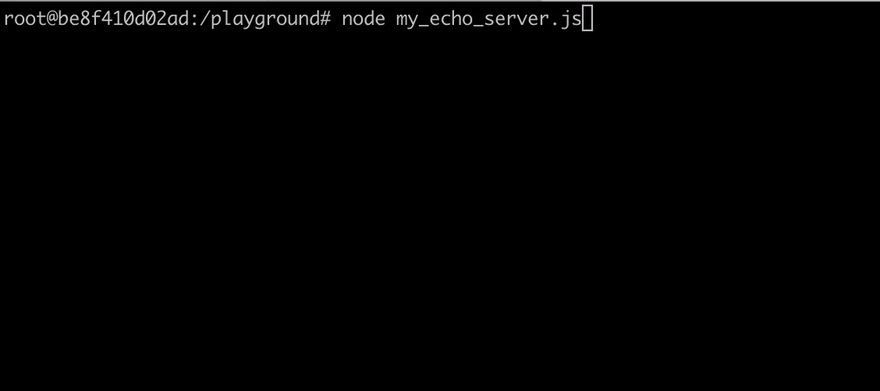Hi! I made a Docker image for QUIC in Node.js for everyone to try QUIC easily.
GitHub repository
Here is the GitHub repository.
 nwtgck
/
docker-node-quic
nwtgck
/
docker-node-quic
Docker image for Node.js with QUIC
docker-node-quic
Docker image for Node.js with QUIC
Usage
You can docker-run with docker run -it nwtgck/node-quic as follows.
$ docker run -it nwtgck/node-quic
Welcome to Node.js v14.0.0-pre.
Type ".help" for more information.
> const { createQuicSocket } = require('net');
undefinedYou can get more detail examples and descriptions about the usage of QUIC in Node.js in the following.
quic/quic.md at cee2e5d079ca2b55e421d81df1ad131c1bfeecc6 · nodejs/quic
Article
Here is an article to get example.
You can use the docker image by docker run -it nwtgck/node-quic and use QUIC by const { createQuicSocket } = require('net');.
Create echo server
As an example, let's create an echo server.
First, you can create self-signed certificates as follows.
mkdir ssl_certs
cd ssl_certs
openssl genrsa 2024 > server.key
openssl req -new -key server.key -subj "/C=JP" > server.csr
openssl x509 -req -days 3650 -signkey server.key < server.csr > server.crt
cd -
Second, create my_echo_server.js as follows.
// my_echo_server.js
const { createQuicSocket } = require('net');
const fs = require('fs');
const key = fs.readFileSync('./ssl_certs/server.key');
const cert = fs.readFileSync('./ssl_certs/server.crt');
const ca = fs.readFileSync('./ssl_certs/server.csr');
const port = 1234;
// Create the QUIC UDP IPv4 socket bound to local IP port 1234
const server = createQuicSocket({ endpoint: { port } });
// Tell the socket to operate as a server using the given
// key and certificate to secure new connections, using
// the fictional 'hello' application protocol.
server.listen({ key, cert, alpn: 'hello' });
server.on('session', (session) => {
// The peer opened a new stream!
session.on('stream', (stream) => {
// Echo server
stream.pipe(stream);
});
});
server.on('listening', () => {
// The socket is listening for sessions!
console.log(`listening on ${port}...`);
console.log('input something!');
});
const socket = createQuicSocket({
client: {
key,
cert,
ca,
requestCert: true,
alpn: 'hello',
servername: 'localhost'
}
});
const req = socket.connect({
address: 'localhost',
port,
});
req.on('secure', () => {
const stream = req.openStream();
// stdin -> stream
process.stdin.pipe(stream);
stream.on('data', (chunk) => console.log('client(on-secure): ', chunk.toString()));
stream.on('end', () => console.log('client(on-secure): end'));
stream.on('close', () => {
// Graceful shutdown
socket.close();
});
stream.on('error', (err) => console.error(err));
});
Next, enter a docker container as follows.
docker run -it -v $PWD:/playground nwtgck/node-quic bash
And, type the following commands in the container.
# Move the playground
cd /playground/
# Run echo server
node my_echo_server.js
In the container, you can use existing packages because npm command is available. You can expose UDP port by -p 1234:1234/udp with docker run.
Demo
Your inputs on stdin are echoed by the server.
Learn more
- Official document: quic/quic.md at cee2e5d079ca2b55e421d81df1ad131c1bfeecc6 · nodejs/quic
- Echo server ref: A QUIC Update for Node.js
- My Japanese post: https://scrapbox.io/nwtgck/Node.js%E3%81%AEQUIC%E3%82%92%E5%85%88%E5%8F%96%E3%82%8A%E3%81%97%E3%81%A6%E4%BD%BF%E3%81%A3%E3%81%A6%E3%81%BF%E3%82%88%E3%81%86







Top comments (1)
can you please help that why docker image is not running?